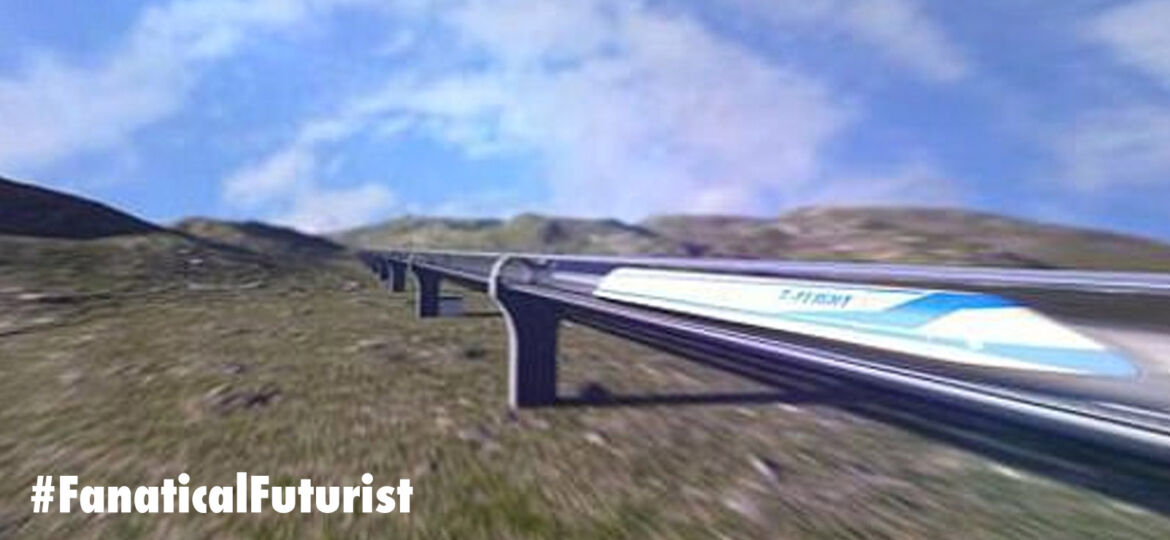
WHY THIS MATTERS IN BRIEF
When people looked into the future they saw faster more efficient planes that made trains obsolete, but the tables look like they’re starting to turn.
As the race to be the first company to build the world’s first commercial Hyperloop network, a network of Mach 1.0 levitating trains that travel in vacuum tubes, hots up, with Hyperloop Transportation Technologies (HTT), Hyperloop One and Tesla all starting to break a sweat as they put their prototypes through their paces the state-owned China Aerospace Science and Technology Corporation (CASC) has claimed it plans to develop the next generation of trains, which can travel at speeds of up to 2,500mph. Or is that the next, next generation of trains? Anyway…
Liu Shiquan, a deputy general manager at CASC, said their scientists would be looking to develop the super-fast trains of the future that could “fly on the ground,” and they seem to have dubbed the initiative as “T-Flight.”
“The corporation has built rich experience and accumulated technological know-how through major projects, and it has the capabilities in simulation, modelling and experimentation for large-scale projects, as well as the world-class design capability for supersonic aircraft, all of which lay the important ground for the super-fast train project,” said Shiquan.
With connections to China’s defence ministry, CASC has already been involved in developing satellites, rockets and missiles, and now it looks as though plans are afoot to turn its attention on futuristic technology that’s closer to home.
China already has the largest network of high speed trains in the world, and recently they announced another $500 Billion in funding so it’s obvious that they’re keen to continue outstripping the competition.
CASC officials have said they will work with more than 20 other research institutes, both domestic and international, in the quest to create the proposed 2,500mph trains, and although the ‘flying train’ may be a way off becoming a reality another team of Chinese scientists recently announced plans to create a more down to Earth 600mph inter-city train built on the same Hyperloop concept we’re seeing across the water in the US. And as all of these technologies continue their relentless march to becoming reality you have to ask the question – in the future why would anyone want to bother getting on board a plane which increasingly looks like they’ll be the futuristic equivalent of taking the bus…
Does anyone else want to disrupt the airline and transportation industry? Take a ticket and stand in line.

















[…] talked about a special Chinese project that was aiming to create a hyperloop-like train that could travel at Mach 3 to 4, or about 2,500 mph, called the T-Flight and now, years later, it seems progress is being made and […]